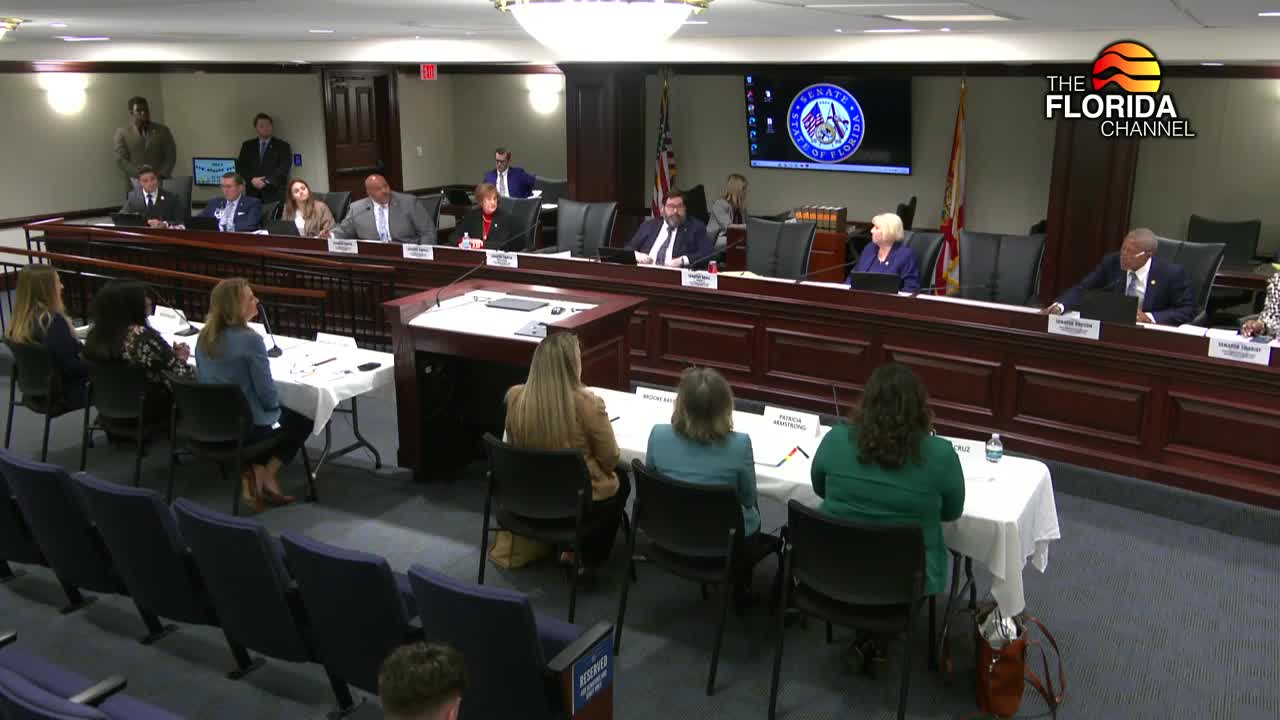Senators press DCF, CPTs on staffing, forensic-interview delays and Jordan's Law implementation
Get AI-powered insights, summaries, and transcripts
Subscribe
Summary
Committee members questioned DCF, DOH and local CPT/CAC leaders about CPI staffing, investigator turnover, response-time policy and reported waits for forensic interviews; DCF offered figures and said it would follow up with more detailed counts of medical providers and staffing.
Lawmakers on the Senate Committee on Children, Families and Elder Affairs pressed state and local child-welfare officials on staffing shortages, response times and delays that committee members said are affecting investigations and prosecutions.
"In June 2020, the governor signed into law Jordan's law," Senator Russon said during the hearing, asking panelists whether the law's communication requirements had been implemented. Several panelists said multidisciplinary staffings and increased emphasis on partner communication have followed but agreed to provide the committee with specifics on implementation steps.
Senator Sharif pressed DCF on case volume and staffing. Brooke Bass, assistant secretary at DCF, said, "we have approximately 1,500 CPI statewide," and described the department's response-time standard: "At minimum, we need we have a 24 hour response time." She added that more urgent cases may receive an "immediate response time, which is typically around 4 hours."
Panelists and law enforcement witnesses described operational impacts when medical and forensic resources are limited. Sergeant Karen Dukes of the Jacksonville Sheriff's Office said detectives and prosecutors have experienced delays: "we are now starting to schedule this forensic interviews, a week and a half, 2 weeks out." Dukes said in some cases detectives do not receive CPT reports for weeks to months, which can delay probable-cause development and requests for warrants.
Panelists explained the investigative sequence: CPIs conduct initial fact-finding interviews to assess safety; when a child discloses or evidence indicates a forensic interview is needed, partners stop the fact-finding interview and schedule a recorded forensic interview usually conducted by a trained interviewer and observed by investigative partners. Luzette Cruz, of the Florida Network of CACs, said the CAC model calls for an MDT response "from the beginning" in communities that have a CAC.
Officials acknowledged workforce and retention challenges. DCF staff said turnover commonly occurs around 12—— months, in part because the work requires extensive on-call duty and can strain work-life balance. Panelists agreed on the need for more provider-level data: DCF did not provide an exact statewide count of CPT physicians, APRNs, physician assistants or RNs during the hearing but agreed to research and supply those figures to the committee.
Senators requested follow-up materials including: a county-level map of CAC locations and coverage, DCF counts of CPT medical providers and details on implementation steps taken following Jordan's Law. Committee leadership said the information will inform potential statutory or budgetary responses to staffing and access gaps.
